By clicking on the cover of each book you will be redirected to an outside website for purchase of the book. These websites are not affiliated with Decoding Dyslexia CA.
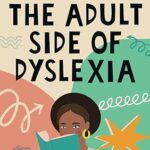
The Adult Side of Dyslexia
This book combines moving accounts of the lived experience of dyslexic adults with tips and strategies for surmounting the challenges you or a loved one or family member may face. Drawing on in-depth interviews, Kelli Sandman-Hurley explores common themes such as school experiences; the impact of dyslexia on mental well-being; literacy skills; and being a dyslexic parent, perhaps to a child who is also dyslexic. Interviewees share what helped them (or didn't), the strategies they use daily to tackle literacy-based tasks, anxiety and low self-esteem, the advice they would give to the parent of a dyslexic child who is struggling, and reflect on how their experience has impacted their own parenting style.
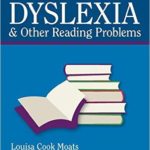
Basic Facts About Dyslexia & Other Reading Problems
A must-have guide for any parent or teacher of a child struggling to learn to read, this essential resource begins by answering the question “What is Dyslexia?” The authors have masterfully selected and distilled the most significant research in the field to provide clear and detailed explanations.
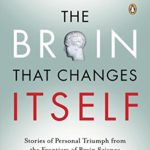
The Brain That Changes Itself
An astonishing new science called “neuroplasticity” is overthrowing the centuries-old notion that the human brain is immutable. In this revolutionary look at the brain, psychiatrist and psychoanalyst Norman Doidge, M.D., provides an introduction to both the brilliant scientists championing neuroplasticity and the people whose lives they’ve transformed.
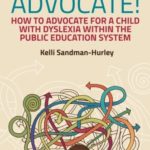
Dyslexia Advocate!
This straightforward guide provides the essential information for parents and advocates to understand US law and get the right educational entitlements for a child with dyslexia. Using case studies and examples, this book demonstrates clearly how to apply the Individuals with Disabilities Education Act (IDEA) to the unique requirements of a dyslexic child. It offers simple, intelligible help for parents on how to coordinate successfully with their child’s school and achieve the right services and support for their dyslexic child; up to and beyond getting an effective Individual Education Plan (IEP).
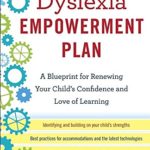
The Dyslexia Empowerment Plan
A great book for parents that gets down to the heart of the matter; how to empower children with dyslexia. The author from personal experience knows that our kids will learn to read and write, but it is their feeling of self-worth and empowerment that will facilitate their life long success.
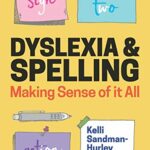
Dyslexia & Spelling: Making Sense of it All
Written by an authority in the dyslexia field, this is the first accessible guide to the close interplay of spelling and dyslexia. Kelli Sandman-Hurley talks the teacher or parent through why kids with dyslexia find spelling so hard, and what we can learn from the spelling mistakes in their writing samples. Introducing key terminology around morphemes (smallest unit of meaning in words) and phonemes (smallest contrastive units in language) in an accessible and clear way, Sandman-Hurley goes on to explain how we can identify, and learn from, kids' spelling miscues, and use them to further inform our teaching and instruction.
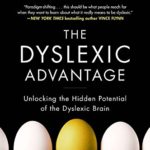
The Dyslexic Advantage
In this groundbreaking book, Brock and Fernette Eide explain how 20% of people—individuals with dyslexia—share a unique learning style that can create advantages in a classroom, at a job, or at home. Using their combined expertise in neurology and education, the authors show how these individuals not only perceive the written word differently but may also excel at spatial reasoning, see insightful connections that others simply miss, understand the world in stories, and display amazing creativity.
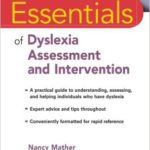
Essentials of Dyslexia Assessment and Intervention
A great book for teachers that provides practical e step-by stepinformation on accurately identifying, assessing, and using evidence based interventions with individuals with dyslexia. Addressing the components that need to be considered in the assessment of both cognitive and academic – this book includes descriptions of the various tests used in a comprehensive dyslexia assessment along with detailed, evidence-based interventions that professionals and parents can use to help individuals struggling with dyslexia.
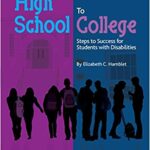
From High School to College: Steps to Success for Students with Disabilities
College is a different world from high school and the laws, expectations, and culture around disability services and accommodations are different, too. Elizabeth Hamblet, a Columbia University Learning Specialist/Consultant and recognized transition speaker and writer, has written a one-of-a-kind, step-by-step guide that is an essential resource for college-bound students, their families, and the special educators and school counselors who work with them. This second edition has been updated to include recent research and reflections from college disability services directors, successful college students, transition specialists, relevant subject-area experts, and parents. The book provides a clear path for preparing students with disabilities for successful transition to college
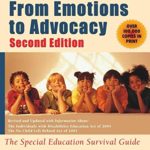
From Emotions to Advocacy
From Emotions to Advocacy, second edition will teach you how to plan, prepare, organize and get quality special education services. In this comprehensive, easy-to-read book, you will learn about your child's disability and educational needs, how to create a simple method for organizing your child's file and devising a master plan for your child's special education. You will understand parent-school conflict, how to create paper trails and effective letter writing. This book includes dozens of worksheets, forms and sample letters that you can tailor to your needs. Whether you are new to special education or an experienced advocate this book will provide a clear roadmap to effective advocacy for your child. You will use this book again and again.
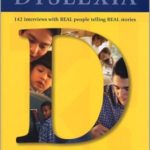
The Human Side of Dyslexia: 142 Interviews with Real People Telling Real Stories
While many books on dyslexia focus on the mechanics of the learning disability, this is the human story of the people who live with it. Through their stories we learn their strategies and tools for coping with the reading disability. Many of the stories are inspirational and will be a comfort to parents who worry about their child’s future.
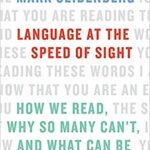
Language at the Speed of Sight: How We Read, Why So Many Can’t, and What Can Be Done About It
The way we teach reading is not working, and it cannot continue. We have largely abandoned phones-based reading instruction, despite research that supports its importance for word recognition. Rather than treating Black English as a valid dialect and recognizing that speaking one dialect can impact the ability to learn to read in another, teachers simply dismiss it as "incorrect English." And while we press children to develop large vocabularies because we think being a good reader means knowing more words, studies have found that a large vocabulary is only an indication of better pattern recognition.
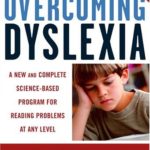
Overcoming Dyslexia
A great book that explains what dyslexia is and gives parents tools for helping their children become fluent readers. One of the most helpful and informative books that most parents read early in their journey that really open their eyes and pointed them in the right direction to seek the help their kids needed.
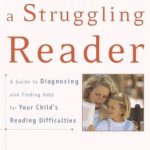
Parenting a Struggling Reader
This book helped explain how school systems work and provided real-world practical guidance on how to understand and work within the framework of the public school system. It also helped us understand the need to sometimes look outside public schools for additional resources.
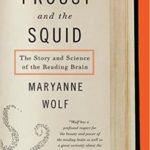
Proust and the Squid
“Human beings were never born to read,” writes Tufts University cognitive neuroscientist and child development expert Maryanne Wolf. Reading is a human invention that reflects how the brain rearranges itself to learn something new. In this ambitious, provocative book, Wolf chronicles the remarkable journey of the reading brain not only over the past five thousand years, since writing began, but also over the course of a single child’s life, showing in the process why children with dyslexia have reading difficulties and singular gifts.
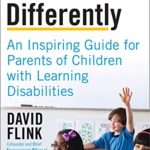
Thinking Differently
Focusing on how to arm students who think and learn differently with essential skills, including meta-cognition and self-advocacy, Flink offers real, hard advice, providing the tools to address specific problems they face—from building self-esteem and reconstructing the learning environment, to getting proper diagnoses and discovering their inner gifts. With his easy, hands-on “Step-by-Step Launchpad to Empowerment,” parents can take immediate steps to improve their children’s lives.
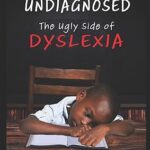
Undiagnosed: The Ugly Side of Dyslexia
In UNDIAGNOSED, The Ugly Side of Dyslexia, Emmy nominated actor Ameer Baraka depicts how coming of age in the murderous streets of 1980s New Orleans collided with an unrecognized learning difference. Incarcerated for manslaughter at the age of fourteen, Ameer must reconcile his past with the will to persevere through the misconception that he's unable to learn. At age twenty-three, Ameer re-enters the prison system, where he reclaims an education denied to so many who struggle to read. His rage transforms into determination to help other inmates and young people recognize that through perseverance and education, there is an alternative to living a life of crime and a method to dismantle the school-to-prison pipeline. Stories speak louder than statistics, and in this tale of redemption, the good we do is measured by what we've overcome and the lives we inspire after discovering our truth.
